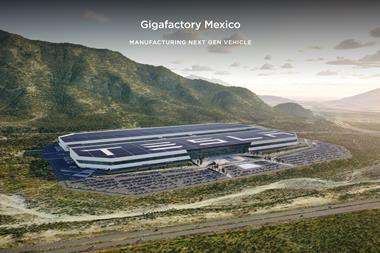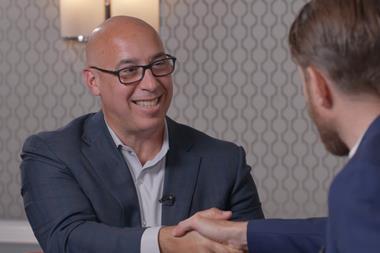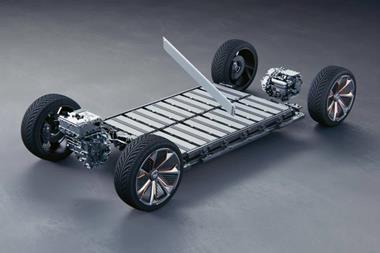GM has appointed Kurt Kelty, a battery expert and former Tesla executive, to its new role of vice-president of batteries
Kelty will be responsible for GM’s battery cell strategy and a new end-to-end approach in EVs. That includes the use of raw materials, research, developing and investing in new technology, commercialisation of cells and packs, and end-of-life recyling and reuse opportunities. He will report to Mark Reuss, president, GM.

GM said the move will accelerate the carmaker’s vision of an all-electric future, bringing together the company’s battery development resources with industry expertise to “more quickly deliver profitable, lower cost, higher performing EVs to customers at scale”. The carmaker said the role builds on its infrastructure, which is already enabling GM to identify and prototype next generation technology and mass produce cells.
Most recently, Kelty was vice-president of commercialisation at American battery manufacturer Sila Nanotechnologies. Prior to that was Tesla’s senior director of the Battery Technology division for more than a decade and was a key driver in the creation of Tesla’s first gigafactory.
He began work in lithium-ion batteries in 1993 at Panasonic, where he was founder and director of the battery R&D lab. There he created joint development programmes to advance lithium-ion rechargeable batteries, and previously held board member roles at AMP, before it was acquired by Ford, and BP.
Mark Reuss, president, GM said: “The foundation that GM has established coupled with Kurt’s exceptional battery expertise in leading battery chemistry development, establishing partnerships, building out supply chains and partnering closely with teams that have developed leading battery systems, will help us achieve our electrification goals and position GM as a leader in EV technology.”
Over the past year, GM has been ramping up its EV and battery investments. Back in June, it signed a definitive agreement with Australian battery material supplier Element 25 to support the production of more than 1m EVs annually in North America – a move that over seven years would supply GM with 32,500 metric tons of battery-grade high-purity manganese sulfate, a raw material for the cathode precursor in lithium-ion batteries.
“For more than 30 years, I’ve been focused on helping develop and commercialise battery technologies that will aid in the transition to electric transportation,” Kelty said. “Joining GM creates an even bigger opportunity to help the industry make the switch and have a lasting impact on our planet.”


























![Global[1]](https://d3n5uof8vony13.cloudfront.net/Pictures/web/a/d/s/global1_726550.svgz)













No comments yet